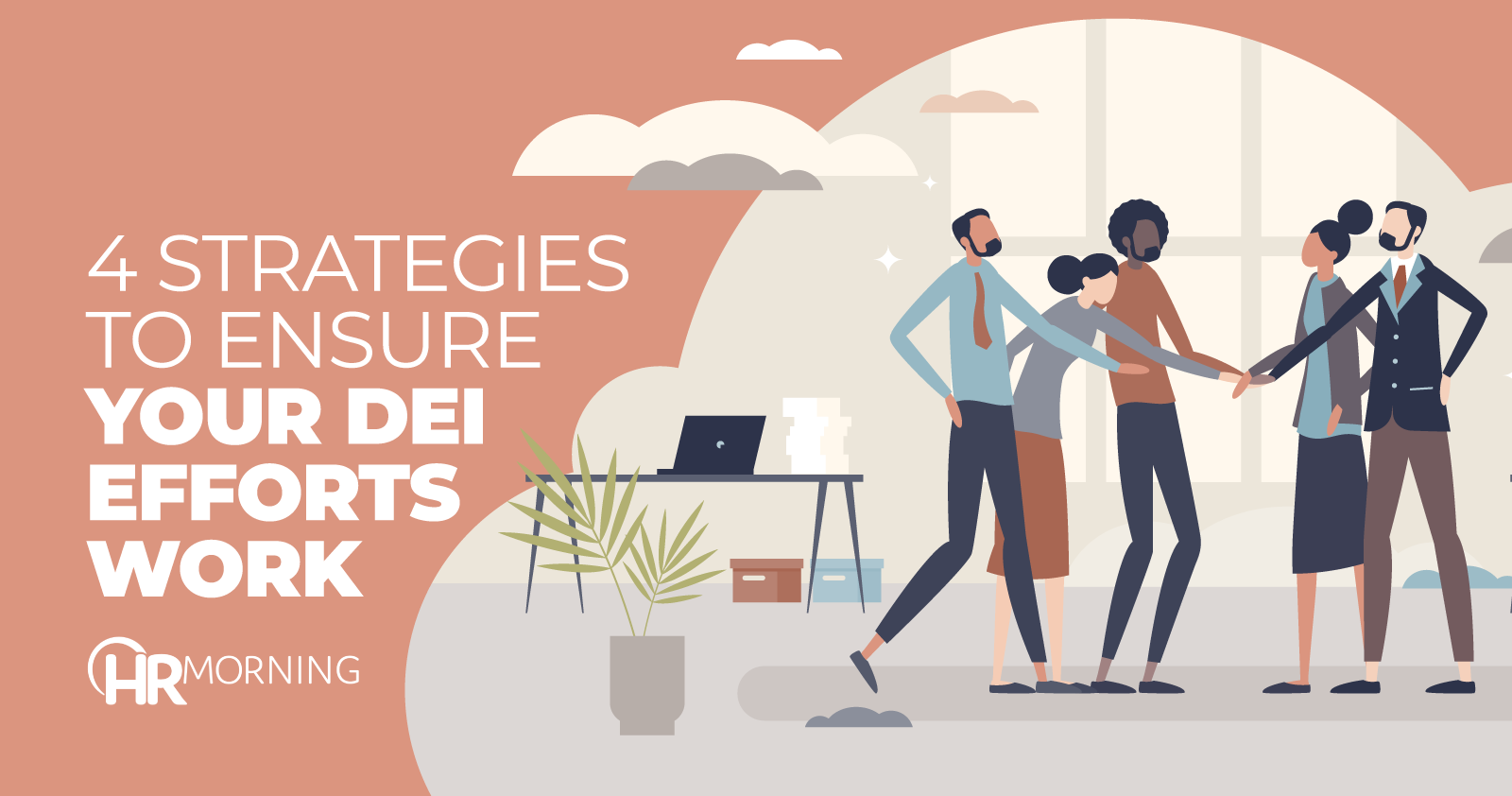You plan to improve Diversity, Equity and Inclusion (DEI), but will your DEI efforts make an impact?
That’s the true test for HR professionals today.
Whether you have been enhancing DEI efforts to stay on-point with the changing workplace, or plan new or first-time initiatives this year, it’ll likely be a bumpy road ahead.
“DEI will be pressure-tested. The threat to – and likely overturning of – affirmative action in the U.S. could lead to a chilling effect for corporate DEI initiatives,” says Elizabeth Weingarten, the Head of Behavioral Science Insights at Torch. “This will test the ability of organizations to continue to act on their DEI promises, and potentially require some creative rethinking of how to do this.”
Your DEI efforts’ far reach
Your DEI efforts will potentially have a bigger impact than ever on company culture and organization success.
Reason: More than a third of employees feel their culture is “toxic” because there’s a lack of diversity, equity, inclusion and belonging throughout the company, the eLearning’s The Future Of Work Report 2022: Culture Trends And What Employees Want found.
So your DEI efforts are far-reaching, impact the culture – and subsequently employee engagement and retention.
Here are four tips to ensure your DEI efforts make an impact this year.
Be conscientious with layoffs
More than half of CEOs anticipate downsizing their staff in the next half year, according to research from KPMG. As if the work involved in layoffs isn’t more than enough for HR professionals, it can also put a major dent in – or reversal of – your DEI efforts.
“For companies that can’t avoid cuts, looking at layoffs through a DEI lens is critical as the ‘last in first out’ policy can wipe out recent DEI progress,” says Jess Green, SVP of Customer Success at Lever.
Most companies have improved DEI hiring in recent years, especially with the growth of remote work during the pandemic. So, in many organizations, the “last in” includes the more diverse population.
Work with group leaders to take a more holistic approach to layoffs, considering the diversity of people, skills and experience.
Be genunine with hiring
On the opposite side of the coin, employers will want to continue – perhaps amplify – DEI initiatives in hiring. Some sectors will need to hire and will have greater opportunities to recruit and retain a diverse workforce.
“Ensure efforts are genuine, not just performative,” says Green.
It’s critical to the integrity and effectiveness of the entire hiring process. Reason: More than 60% of employees have felt like they were interviewed for a job so the employer could meet a diversity requirement, a Lever survey found.
“While race and gender tend to be the biggest focuses to create authentic inclusion, organizations must include all perspectives, including LGBTQIA employees, disabled employees and neurodivergent employees,” says Green.
Be a collaborater
HR can’t ensure success on the DEI journey alone. In most cases, front-line managers will need to spearhead and supercharge your DEI efforts.
“Behavioral change is about cultural and habit changes, which takes time, focus, commitment and reinforcement at the team level,” says Stephen Paskoff, CEO of Employment Learning Innovations (ELI) and a former EEOC litigator. “To be effective, front-line managers must function as DEI change agents understanding how DEI affects performance in job-related ways relevant to their work.”
Paskoff suggests HR works with front-line managers to:
- Connect DEI to job expectations. Give examples on how to gain more diversity in work decisions. For instance, ask or require teams to get different gender, age, experience and orientation perspective for projects, and
- Encourage employees to speak up about DEI-related concerns and ideas tied to their own workplace experiences.
“The idea is for everyone to recognize that raising and resolving DEI issues is a part of workplace practices to maximize performance and ultimately bring the best results for everyone,” says Paskoff.
Be transparent and open
Your efforts will go unnoticed, and naturally make less of an impact, if you aren’t transparent and open to feedback every step of the way.
About a third of newer employees believe their company is less focused on diversity than it appeared to be when they were going through the hiring process, the Lever study found. Why? That’s likely because hiring managers and HR pros talk about initiatives and actions while promoting the company to candidates, but don’t do the same continually with internal employees.
“It is critical that organizations make sure they are adequately communicating their internal and external DEI efforts. Along with this, they should create open dialogue with employees through efforts such as listening tours and/or anonymous surveys,” suggests Green.
Another way: Work with your marketing and/or sales colleagues who are already pros at creating and promoting campaigns. Pick the most important stats, greatest achievements and candid quotes. Then ask them to get the information out quarterly in a way that grabs employees’ attention. Follow that with requests and channels for quick and anonymous feedback.


